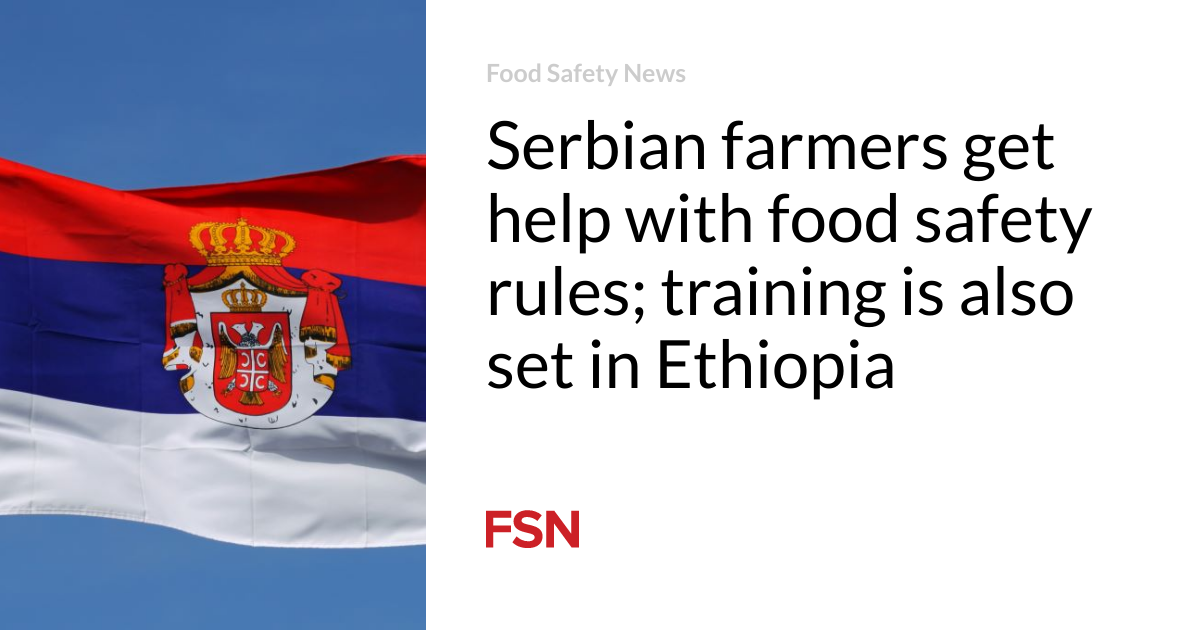Serbian producers have been helped to understand and comply with new food safety laws in the country.
Regulations were drawn up by the government with the support of the UN Food and Agriculture Organization (FAO) and the European Bank for Reconstruction and Development (EBRD).
A set of guidelines and promotional materials will help producers comply with updated food safety bylaws and a training program including video tutorials has been developed.
The aim is to bring traditional practices up-to-date with modern food safety knowledge and bolster the competitiveness of the country’s small-scale producers. As part of national flexibility measures, authorities have developed bylaws and derogations to ensure compliance with EU food safety standards, while safeguarding the nation’s traditional practices.
It is also important for the country’s potential entry into the European Union, which will be helped by ensuring its standards are aligned with those in the EU.
Rules apply to small family-run businesses across the country whether they make meat, jam, juices, dried fruits, pickled cabbage, or ajvar, which is a traditional red pepper paste.
EBRD and FAO have been helping the Serbian Government with food safety and quality standards for several years.
Tamara Bosković, head of Serbia’s Veterinary Public Health Department, said: “These regulations open doors for many small producers to diversify their markets and sales, owing to food safety requirements that take into account their volumes and food safety risks. Even producers in the mountain areas, where infrastructure is limited, can continue to produce in the traditional way, using applicable derogations from the rules while still ensuring food safety.”
FAO and EBRD-supported food safety measures allow the diversity of quality food products, cultural heritage, and smallholder livelihoods to be preserved while ensuring safety and hygiene standards are met.
“Our EBRD and FAO partnership supported the Serbian Government in these efforts to improve the country’s meat, dairy, and plant-based food production and small-scale processing industries while ensuring that smaller operators have a chance to stay in business and be competitive,” said Nemanja Grgić, principal manager, agribusiness advisory at the EBRD.
UNIDO in Ethiopia
Meanwhile, the United Nations Industrial Development Organization (UNIDO) and Foundation FSSC have organized food safety training in Ethiopia. The two groups signed a partnership in 2022 to promote food safety.
The training covered the key elements of Food Safety Management Systems (FSMS) with a focus on the hygienic production and processing of safe and quality moringa products. The moringa plant is used as a staple food and its leaves are dried to make supplements.
The 5-day hybrid event trained 22 participants from different institutions, government agencies, universities, and food manufacturing companies. Participants are now ready to train local support institutes and selected cooperative members in the moringa supply chain.
Thanks to FSSC, UNIDO will continue to provide training activities, equipment, and the tools needed to reduce the socio-economic impact of foodborne diseases in low and middle-income countries.
Training backs up work done in a project funded by the Italian Agency for Development Cooperation (AICS) that UNIDO has been implementing in Ethiopia for the past three years.
(To sign up for a free subscription to Food Safety News, click here.)

